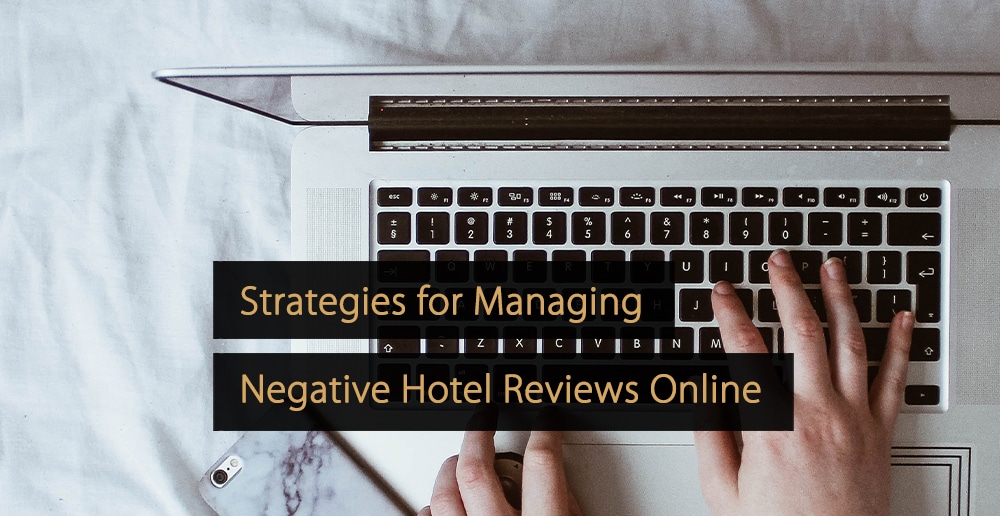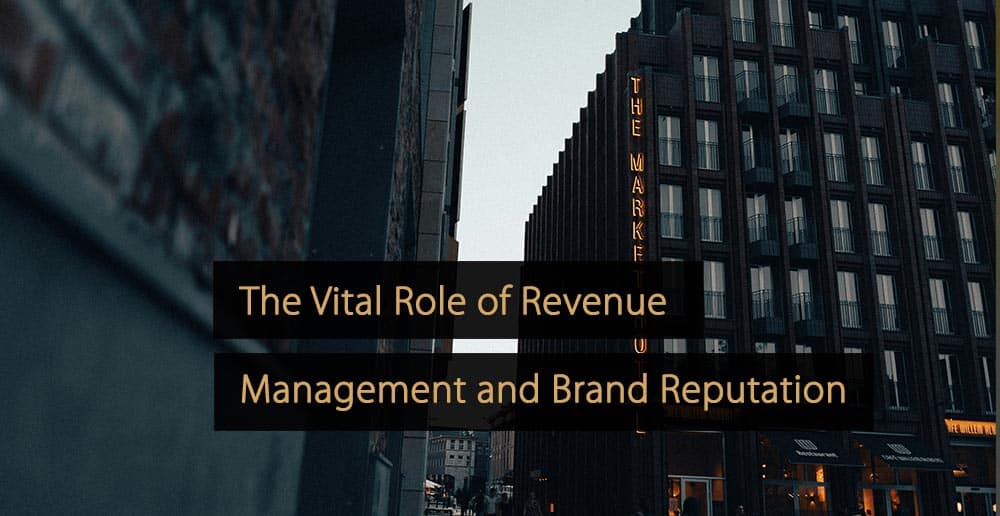Online hotel reviews can have a major bearing on the success or failure of modern hotels and similar types of guest accommodation. Many customers actively look for reviews to help them decide which hotels to stay at, and the proportion of positive and negative reviews goes a long way toward forming your overall reputation. Here, you will gain insights into some of the strategies that can be employed to manage negative hotel reviews online.
Table of Contents:
- What is the Significance of Online Hotel Reviews?
- Why is it Important to Manage Your Hotel Reviews?
- Where Can You See Your Hotel Reviews Online?
- How to Answer Negative Hotel Reviews
- What Are Some Extra Tips for Dealing With Negative Hotel Reviews?
- Is it Possible to Avoid Negative Hotel Reviews?
- Hotel Reviews: A Guide to Hotel Reputation Management Software
- Tips for Managing Online Hotel Reviews and Feedback
What is the Significance of Online Hotel Reviews?
Online hotel reviews provide an opportunity for hotel guests to share their thoughts on the service they received and their overall experience. Through reading hotel reviews and understanding the points made, those in the hotel industry can learn about what they are doing well and where there is room for improvement.
However, while reviews can serve as valuable feedback for hotel managers and others in key roles, they serve an equally important function for potential customers to understand what they can expect when they stay at a particular property. Indeed, many customers actively seek out customer feedback before booking their stay.
Positive reviews can help convince potential customers to book a hotel room, but negative reviews can have the opposite effect. Readers may turn to online reviews to learn about what the staff is like, what the rooms are like, how customers are treated, and whether guests feel they are receiving value for money.
Why is it Important to Manage Your Hotel Reviews?
Those in hotel management positions must take appropriate steps to manage hotel reviews. After all, these reviews can go a long way toward determining your hotel’s reputation. This explains why the process of managing reviews online is sometimes referred to as online reputation management.
Reviews may be left on various platforms, from online travel agencies and hotel metasearch engines to sites like Google, or social media platforms like Facebook. Ultimately, reviews can generate engagement, boost online search engine placement, and encourage bookings, but they must be managed carefully.
Reputation management should use legitimate strategies to attract as many positive reviews as possible while minimizing the damage caused by negative hotel reviews. This means learning from feedback, optimizing customer service within your hotel, and responding appropriately to any negative reviews left online.
Where Can You See Your Hotel Reviews Online?
Any attempt to manage hotel reviews needs to recognize the sheer number of channels where these reviews may appear. Hotel guests may leave their feedback on dedicated travel websites, like TripAdvisor, Trivago, Booking.com, and Expedia, on social media channels like Facebook, or review platforms like Yelp.
Google and other search engines also allow customers to leave reviews, which can be especially influential. Today, many modern hotel customers use search engines to find hotels, and they will then be presented with this feedback. In some cases, reviews could also be left on your hotel website.
How to Answer Negative Hotel Reviews
No hotel manager likes to read negative feedback, but you mustn’t ignore negative reviews left online. Generally, the best approach to dealing with negative reviews is to adopt a polite tone and take the feedback seriously. You could begin by thanking the customer for their visit and taking the time to write their review.
When possible, you should acknowledge legitimate criticism in hotel reviews and try to view it as meaningful feedback that you can learn from. If there have been failings on the part of your hotel, apologize and stress your intention to make amends. Avoid becoming confrontational, and ensure you maintain a professional tone at all times.
Video: How To Manage Negative Hotel Reviews
What Are Some Extra Tips for Dealing With Negative Hotel Reviews?
Dealing with positive hotel reviews is relatively simple, but handling negative reviews is where your reputation and review management skills will be tested. Below, you will find some extra tips intended to assist you in dealing with negative feedback and responding to it in the best possible way.
Always Answer a Negative Online Hotel Review
First, and most importantly, you need to commit to always responding to negative hotel reviews and feedback, wherever those reviews are posted. Negative reviews can harm your business by putting new customers off and causing long-term damage to your reputation, so you need to respond to limit this.
Potential customers will see the negative reviews, but they will also see your response. This is your opportunity to address any shortcomings, put your own perspective across, explain what you have done to correct the situation, and provide an explanation for why other customers will not experience the same disappointment.
Acknowledge the Problem and Provide Solutions
In addition to committing to a response, you also need to acknowledge any criticism you receive from hotel reviews and try to provide solutions. This means you must take the complaint or criticism seriously, reflect on the level of service you provided, and take steps to improve.
Sometimes, it may be appropriate to personally respond to the customer writing a review and try to make amends with them individually. This could be achieved by offering them a discount if they return in the future, or providing them with something else of value to apologize for the disappointment.
Negative reviews may not necessarily put other customers off on their own. Still, these potential future hotel guests will look at your response and use it to help them draw conclusions about your business. Try to appear professional, in control, and like a business genuinely caring about guests’ experiences.
Is it Possible to Avoid Negative Hotel Reviews?
The other side of reputation management occurs before hotel reviews are posted online, which means focusing strongly on customer service and delivering the best possible customer experience.
In general, the best way for hotels to avoid negative reviews is by being attentive, providing high-quality service, helping customers when they have questions, and providing a clean and pleasant environment for them to stay in. However, further steps can be taken to avoid negative reviews too.
For instance, a key part of avoiding bad hotel reviews involves meeting or exceeding customer expectations. This means keeping up-to-date with the latest hotel trends and ensuring you provide similar service to other hotels. Sending customer surveys out can also help because it allows guests to make suggestions.
It may also involve making effective use of the latest hotel technology. After all, if your hotel does not offer the latest gadgets, tools, and technology solutions, you risk providing rivals with an unnecessary advantage and leaving guests disappointed that your property does not positively compare with other places they have stayed.
Hotel Reviews: A Guide to Hotel Reputation Management Software
You can also turn to hotel reputation management software when dealing with online reviews. These solutions can help to bring all online reviews into a centralized location, making them much easier to manage and respond to. Software of this kind also allows multiple hotel properties to be managed simultaneously.
You can learn about hotel reputation management software in more detail – with insights into how the software can help you and a breakdown of the main features – in the “Hotel Reputation Management Software Guide”.
Tips for Managing Online Hotel Reviews and Feedback
Aside from the advice, several tips can assist hotel managers, marketers, and other business leaders in managing their reviews. These range from identifying trends within the feedback and highlighting common complaints to drawing attention to positive reviews on your own hotel website.
You can learn about these and several other ways to manage online reviews and the feedback you receive from guests by reading the “9 Tips to Manage Online Hotel Reviews” article.
Hotel reviews have the power to drastically impact business performance because so many potential customers actively seek out reviews before making bookings. Therefore, hotels need to take appropriate steps for managing reviews, such as responding to negative reviews and learning lessons from them.
More Tips to Grow Your Business
Revfine.com is the leading knowledge platform for the hospitality and travel industry. Professionals use our insights, strategies, and actionable tips to get inspired, optimize revenue, innovate processes, and improve customer experience.Explore expert advice on management, marketing, revenue management, operations, software, and technology in our dedicated Hotel, Hospitality, and Travel & Tourism categories.
This article is written by:
Hi, I am Martijn Barten, founder of Revfine.com. With 20 years of experience in the hospitality industry, I specialize in optimizing revenue by combining revenue management with marketing strategies. I have successfully developed, implemented, and managed revenue management and marketing strategies for individual properties and multi-property portfolios.








Leave A Comment